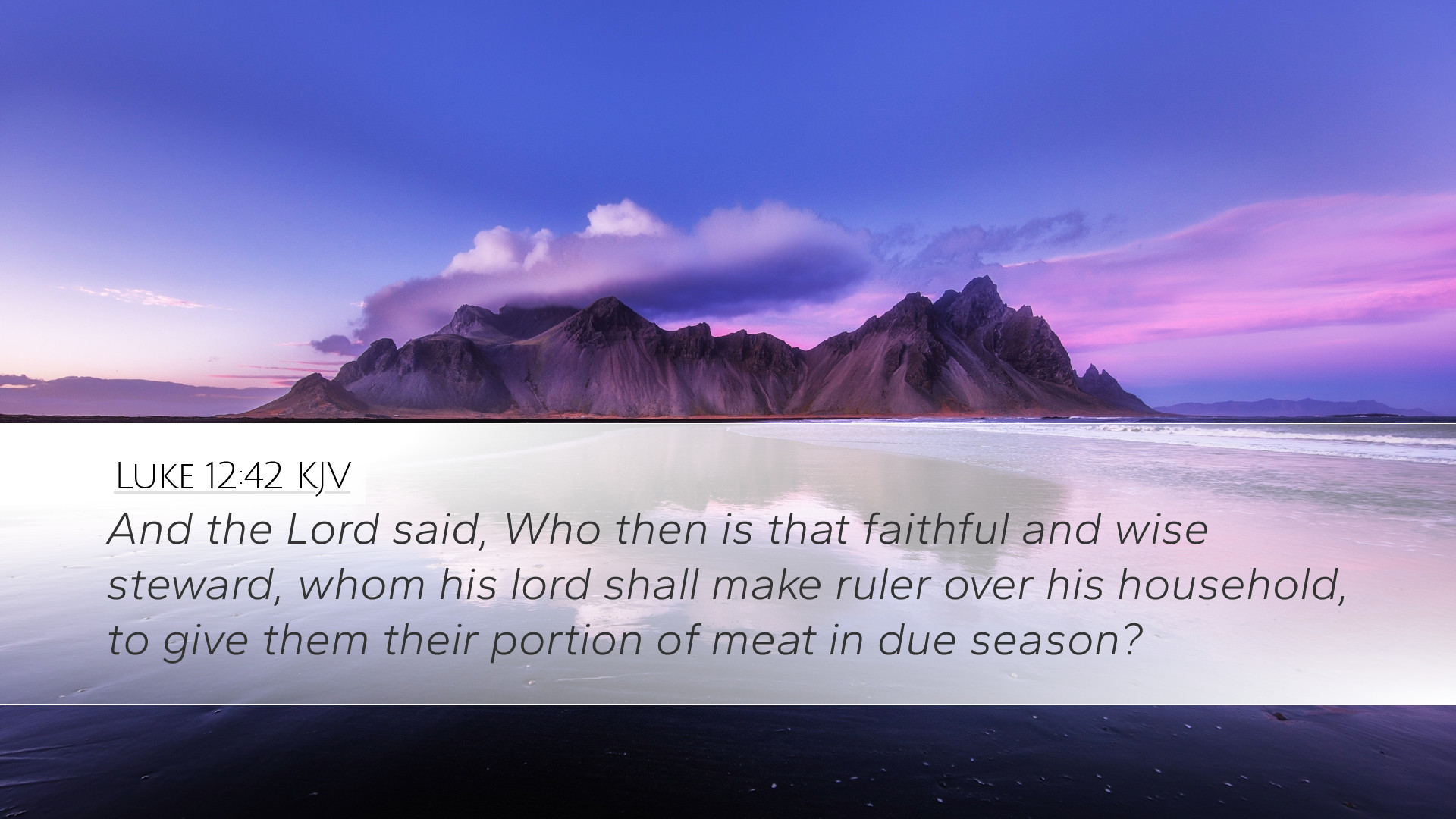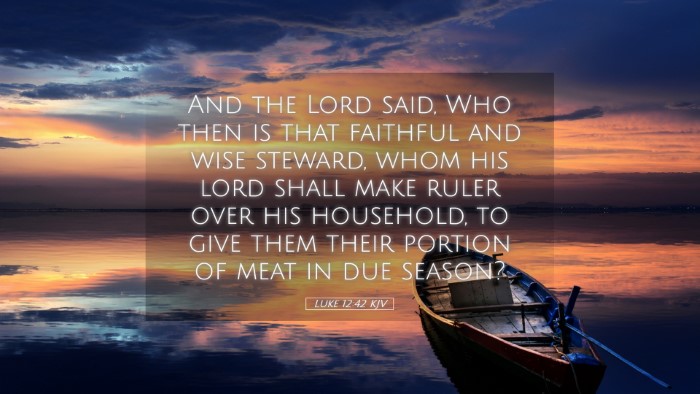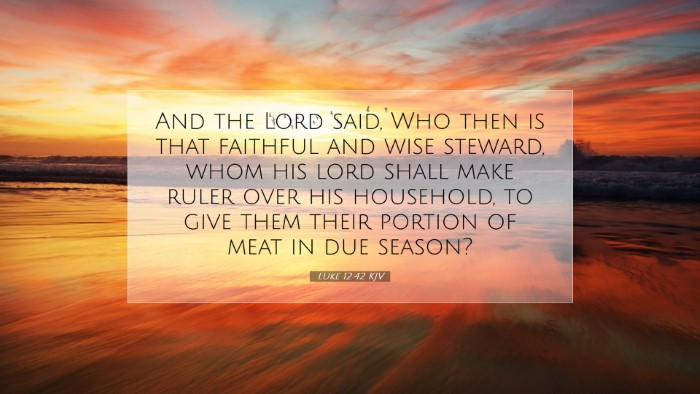Commentary on Luke 12:42
Luke 12:42 states: "And the Lord said, Who then is that faithful and wise steward, whom his lord shall make ruler over his household, to give them their portion of meat in due season?" This verse leads us into a profound examination of stewardship, responsibility, and the nature of leadership in the Kingdom of God.
Contextual Background
The discourse of Jesus in Luke 12 is a portrayal of various themes, including vigilance, readiness for the coming of the Lord, and the characteristics of faithful stewardship. It comes in the broader context where Jesus instructs His followers about the importance of being prepared and faithful in the responsibilities God has entrusted to them.
Understanding "Faithful and Wise Steward"
The term "faithful and wise steward" in this passage carries a significant weight. The steward is one who manages another's property, showing that this position is not one of ownership but of responsibility. Commentators emphasize that the ideal steward must possess both faithfulness and wisdom.
- Faithfulness: Matthew Henry notes that faithfulness pertains to reliability and constancy in duty. It is not merely about being present but about fulfilling one’s obligations with integrity.
- Wisdom: Albert Barnes points out that wisdom refers to the ability to use knowledge effectively and to make sound decisions in the best interests of those being served. A wise steward understands the needs of the household and acts in accordance with them.
The Role of the Steward
In biblical times, a steward managed the affairs of a household, often entrusted with considerable authority and responsibility. Adam Clarke elaborates on this role, indicating that stewards were expected to provide for the household's needs, manage resources wisely, and ensure the well-being of all within their care. This analogy extends to spiritual leadership, where those who lead must serve with the intention of nurturing and supporting their congregation.
God's Expectations of Leaders
This verse sets forth that God expects stewards not only to manage but to nurture and feed those entrusted to them spiritually. The phrase "to give them their portion of meat in due season" underscores the importance of timely and appropriate nourishment.
- Spiritual Nourishment: Matthew Henry stresses that leaders in the church must feed their followers with sound doctrine and spiritual food, ensuring that the congregation receives what it needs at the right time.
- Due Season: Albert Barnes highlights that "due season" implies a necessary timing for spiritual instruction and encouragement, emphasizing that insight and providential wisdom are crucial in ministry.
Implications for Pastors and Leaders
For pastors and church leaders, this verse serves as a calling to evaluate their ministry's effectiveness and their adherence to Christ's example. The dual emphasis on faithfulness and wisdom challenges leaders to cultivate both qualities within their character and approach.
- Self-Examination: Adam Clarke suggests a pattern of self-reflection and accountability for leaders, encouraging them to consider whether they are fulfilling their roles as stewards faithfully and wisely.
- Community Care: Emphasizing the welfare of the community, leaders are reminded that a significant aspect of their role is to understand and meet the spiritual and, when necessary, physical needs of their congregation.
Conclusion
In conclusion, Luke 12:42 provides a powerful framework for understanding the nature of biblical leadership and stewardship. It calls pastors, students, theologians, and Bible scholars alike to reflect on their roles as stewards of God’s grace and as representatives of Christ’s love. The faithful and wise steward is a model for all who lead in any capacity, challenging us to serve with integrity and discernment while actively ensuring the spiritual nurture of those in our care.


